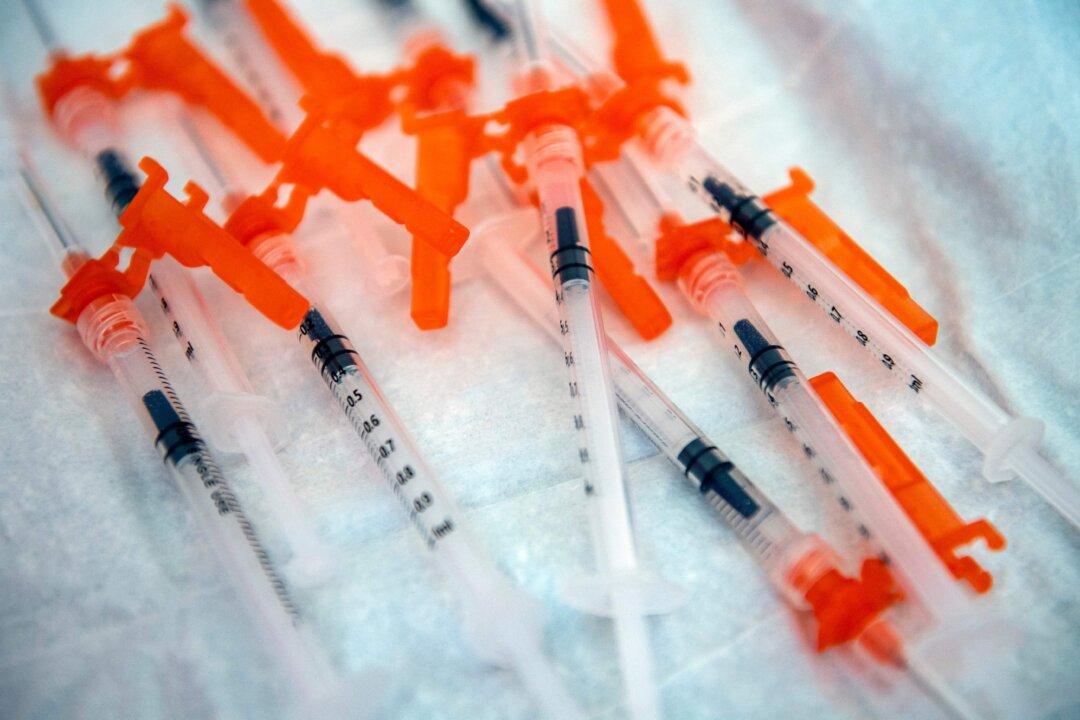The effectiveness of COVID-19 vaccine booster doses dropped well under 50 percent after four months against subvariants of the virus that causes COVID-19, according to a new study from the U.S. Centers for Disease Control and Prevention (CDC).
The Moderna and Pfizer vaccines provided just 51 percent protection against emergency department visits, urgent care encounters, and hospitalizations related to COVID-19 during the time BA.2 and BA.2.12.1, subvariants of the Omicron virus variant, were predominant in the United States, CDC researchers found.





